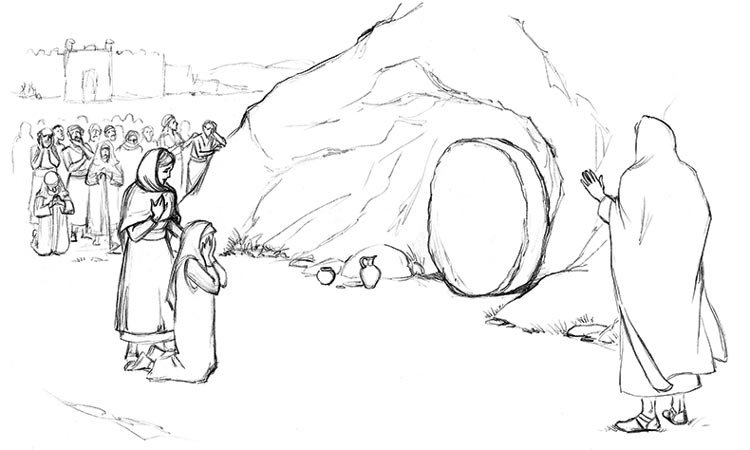There’s a lot of pain in this world. The topic of human suffering winds its way through every period of history as we collectively try to understand its causes. Specifically, how can a good God allow suffering? To be honest, there’s no answer I’ve ever heard that made me think Oh, that totally makes sense. I’m now cool with suffering—cancer and kidnappings and poverty and war and all the other horrors! If I’m honest, every answer seems to sit on the light side of a scale that is so very weighed down with tragedy.
My younger self would hear someone ask this question of how could a good God allow such horrible things to happen, and I would feel a wave of panic, as if me not saying the right thing would cause another person’s faith in God to die. But we all know people who, in the face of heart-rending loss, suffering, and pain have burrowed deeper into their faith and confidence in God, or even those whose sufferings have led them to God. Of course, there are others whose pain and struggle have convinced them that there is no God—or if there is, that He cares very little for the pain of His creations. I’ve learned that there are no neat answers to the question.
The story of Jesus raising Lazarus from the dead has some interesting insight.1 It begins when Jesus received word that His friend Lazarus was very sick, yet He decided to stay two more days where He was, only starting back to Lazarus when he knew that Lazarus was already dead. Martha, Lazarus’ sister, rushed to meet Jesus as soon as He arrived.
“Lord,” Martha said to Jesus, “if you had been here, my brother would not have died. But I know that even now God will give you whatever you ask.”
Jesus said to her, “Your brother will rise again.”
Martha answered, “I know he will rise again in the resurrection at the last day.”
Jesus said to her, “I am the resurrection and the life. The one who believes in me will live, even though they die; and whoever lives by believing in me will never die. Do you believe this?”
“Yes, Lord,” she replied, “I believe that you are the Messiah, the Son of God, who is to come into the world.”
Then Mary comes, much more emotionally…
When Mary reached the place where Jesus was and saw him, she fell at his feet and said, “Lord, if you had been here, my brother would not have died.”
When Jesus saw her weeping, and the Jews who had come along with her also weeping, he was deeply moved in spirit and troubled. “Where have you laid him?” he asked.
“Come and see, Lord,” they replied.
Jesus wept.2
The story goes on to describe how Jesus called to Lazarus and he arose and walked out of the grave, despite having been dead for four days. Most of the onlookers were amazed, most believing that Jesus was the Messiah. But some still did not believe.
Mary’s reaction in this story is so natural, so human. She says, “Lord, if You had been here, my brother would not have died!” She was familiar with Jesus’ ministry of healing and knew He could have saved Lazarus. “Why didn’t You come in time. If only You had, everything would be better.” I would surely have said something like this to Jesus.
What did Jesus do? He wept. He felt sensitive to their pain. Jesus already knew that He was going to raise Lazarus from the dead, because He announced it earlier in the chapter. But the pain of those He loved moved Him, and He wept with them.
The other thing that jumped out at me is that even after seeing this glorious, miraculous resurrection, some people still did not believe. This confirms to me that it’s not about how I answer this question for others, but how I answer it for myself. In this story, I see:
- Jesus taking His time
- Jesus showing up
- Jesus weeping
- Jesus intervening
We don’t have Jesus in the flesh, and a resurrection from the dead is almost never how God intervenes, but I think He still checks all these boxes.
I don’t think there’s a fully satisfying answer for how God can be both good and loving and allow the horrible suffering humanity has endured. Maybe even if He Himself explained it, we still wouldn’t understand, because we simply cannot know what He knows or see what He sees. But we can learn to trust Him, and no one can make that choice for us.
